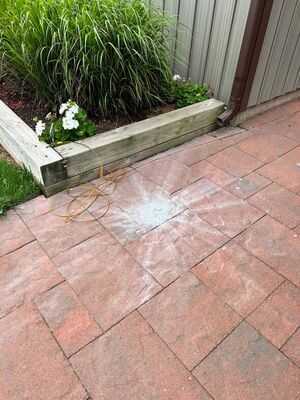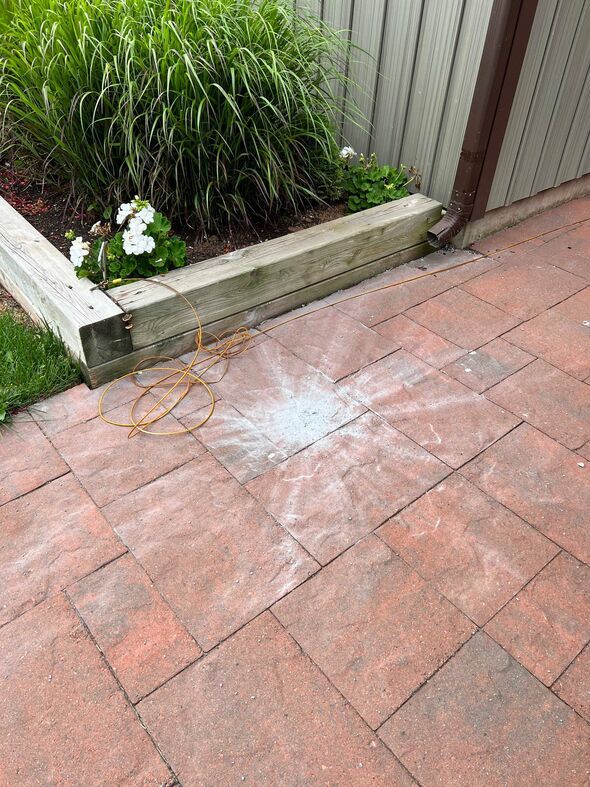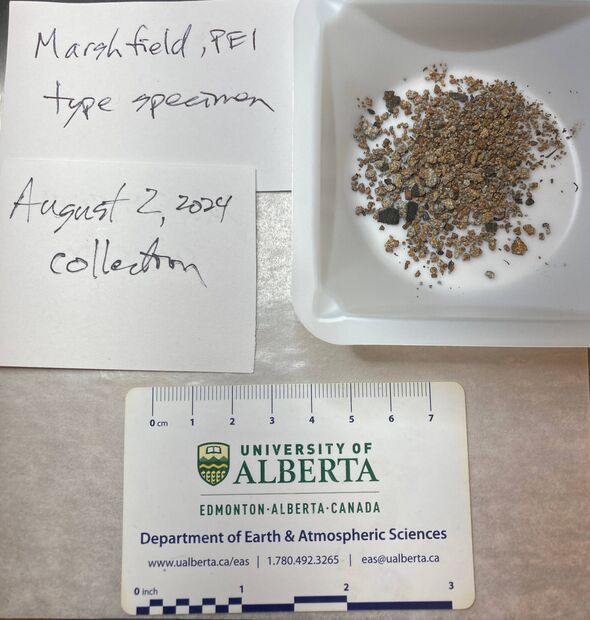
In a cosmic first, a Canadian couple managed to record the spine-tingling sound of a meteorite crash-landing on Earth, using their home security system.
Laura Kelly and her partner Joe Velaidum were baffled by the mysterious dust outside their Prince Edward Island residence in July 2024.
Upon reviewing CCTV footage, they captured a breathtaking moment - a meteorite streaking from the heavens and smacking into the pathway at their home, sending grey dust and debris flying across the walkway and lawn.
Experts from the University of Alberta later analysed the space rock and confirmed its extraterrestrial origins, stating, "Blink and you'll miss it: the rock can only be seen in one frame of the video, which indicates rapid movement, but the exploding dust and sound of the impact was undeniable. It clearly came from the sky and appeared to be a meteorite."

The intrepid homeowners gathered approximately 7 grams of the celestial debris and continued their search for more fragments with a vacuum and magnet.
Connecting with Chris Herd, curator of meteorites at the University of Alberta, through the university's meteorite identification network, their find was authenticated.
Coincidentally, Chris Herd was due to visit Prince Edward Island just ten days later for family reasons - a trip that now had an exciting detour to the landing site of this interstellar visitor.
Supported by relatives, Herd meticulously chronicled the space rock remnants, noting a 2 x 2 cm dent impressed upon the walkway by the meteorite's crash-landing, and salvaged a selection of the shards for inclusion in the University of Alberta Meteorite Collection.

His analysis revealed that the freshly-dubbed Charlottetown Meteorite, a common type of chondrite, possessed distinctive attributes that elucidate why it disintegrated upon contact with terra firma.
"As the first and only meteorite from the province of PEI, the Charlottetown Meteorite sure announced its arrival in a spectacular way. No other meteorite fall has been documented like this, complete with sound," professed Chris Herd. "It adds a whole new dimension to the natural history of the Island."